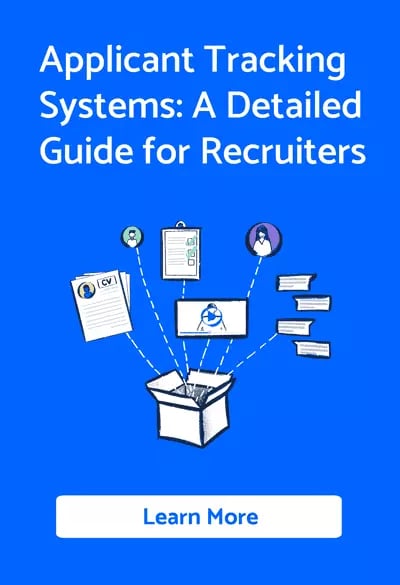
Building a strong and skilled team is crucial for success in the fast-paced world of startups.
However, finding the right candidates can be challenging, with 46% of small businesses needing help finding qualified candidates, as the National Federation of Independent Business reported.
The struggle to hire suitable talent hinders a startup’s growth and comes with significant costs associated with hiring the wrong candidates.
The U.S. Department of Labor estimates that a bad hire can cost a company up to 30% of the employee’s first-year earnings.
This article will explore the reasons behind startups’ struggle to find the right candidates, supported by data, stats, and metrics, and the costs of making poor hiring decisions.
Want to hire better people? 🤔
GoHire is the a fuss-free hiring platform for SMBs to simplify hiring and hire the best people, fast.
1. Clunky Application Process
In the digital age, job seekers expect a smooth and user-friendly application process that can be completed from any device, including mobile phones and tablets.
According to a study by Indeed, 78% of job seekers apply for jobs using their mobile devices, emphasising the importance of optimising the application process for all platforms.
A seamless application experience caters to modern job seekers’ preferences and helps startups capture a larger pool of potential candidates.
A report by Glassdoor found that companies with a mobile-friendly application process experience a 27% increase in applicants compared to those with a less accessible process.
To ensure a seamless application process, startups should:
- Simplify the application form by requesting only essential information, reducing candidates’ time to complete it.
- Optimise the application process for mobile devices by utilising responsive web design and easy-to-use interfaces.
- Minimise the number of steps required to apply for a job, reducing the likelihood of candidates abandoning the process.
- Provide clear instructions and prompts throughout the application process, ensuring candidates understand the requirements and expectations.
- Allow candidates to upload resumes and other relevant documents directly from their devices, streamlining the process and making it more convenient.
2. Limited Resources and Time Constraints
Startups often need more resources, which impacts their ability to spend time and money on effective recruitment strategies.
According to a study by Small Business Trends, founders spend 32% of their time on recruiting and hiring. With multiple responsibilities to manage, time constraints can result in shortcuts and rushed hiring processes, increasing the likelihood of hiring unsuitable candidates.
A 2021 study by Appcast revealed that the average time spent posting a single job across various platforms is approximately 1.5 hours, emphasising the time-consuming nature of the recruitment process.
Additionally, many startups need more dedicated HR teams to manage the hiring process, placing the responsibility on founders or existing team members.
This additional workload can contribute to a less focused and efficient recruitment process, further complicating the search for the right candidates.
3. Lack of Employer Branding
A strong employer brand is essential for attracting top talent, especially for startups competing with established companies.
A report by LinkedIn found that organisations with a strong employer brand receive 50% more qualified applicants and reduce their cost-per-hire by up to 50%. Startups can leverage their unique culture, values, and work environment to differentiate themselves from competitors.
By investing in a well-defined employer branding strategy, startups can effectively communicate their vision and attract candidates with the same goals and values.
A study by Glassdoor revealed that 84% of job seekers consider a company’s reputation when deciding where to apply, highlighting the importance of a positive employer brand for startups.
4. Posting To A Single Job Board
Diversifying job postings across multiple platforms is crucial for increasing visibility and reaching a broader pool of potential candidates. Research by Glassdoor shows that each job opening attracts an average of 250 resumes.
By posting job openings on various niche and general job boards, startups can ensure they reach a diverse and highly skilled group of applicants.
Furthermore, startups can leverage social media platforms like LinkedIn, Facebook, and Twitter to share job openings and showcase their company culture.
This approach can increase the likelihood of attracting passive candidates who may not actively seek new job opportunities but are open to considering exciting prospects.
5. No Screening Questions
To optimise the hiring process and ensure a better fit between candidates and job roles, startups can implement screening questions during the application stage.
Without screening questions, applications tend to attract more general applicants unfit for the position.
By asking targeted questions about the position, startups can quickly filter out candidates who may not possess the necessary skills, experience, or cultural fit.
For example, a startup seeking to hire a software developer could ask questions about programming languages, frameworks, and problem-solving abilities.
Screening questions can streamline the recruitment process and increase the quality of candidates moving on to the interview stage.
According to a study, screening questions can reduce the time-to-hire by up to 30%.
6. Inadequate Job Descriptions and Requirements
A well-crafted job description can make all the difference in attracting the right candidates. However, startups often struggle with creating accurate and enticing job descriptions.
Actually, you can use our AI job description generator to create an original job description for your business.
A study by Harvard Business Review revealed that 61% of job descriptions contained unrealistic expectations or vague requirements, leading to mismatches between candidates and the actual job roles. Moreover, a CareerBuilder survey found that 75% of employers have hired the wrong person for a position, with poorly defined job descriptions and human error being significant factors.
To compound this issue, startups frequently face rapidly changing business environments, which may lead to evolving job roles and requirements. The lack of clear and updated job descriptions can result in attracting candidates who may not be the right fit for the current and future needs of the startup.
7. Competition for Top Talent
Competition for top talent is fierce, particularly in the tech industry. Startups often need help to stand out and attract skilled candidates who may prefer the stability and benefits established companies offer.
According to a report by LinkedIn, companies with a strong employer brand receive 50% more qualified applicants and reduce their cost-per-hire by up to 50%.
However, many startups lack the resources to invest in employer branding, hindering their ability to attract top talent. A study by McKinsey found that reallocating time to core activities, including employer branding, can improve a startup’s productivity by up to 40%.
Another challenge startups face in attracting top talent is offering competitive compensation packages. Established companies may have more financial resources to provide higher salaries, bonuses, and benefits, making it difficult for startups to compete in attracting highly skilled candidates.
To wrap up...
Finding the right candidates is a significant challenge startups face, costing valuable time and resources.
By investing in employer branding, posting to multiple job boards, implementing practical screening questions, and ensuring a seamless and mobile-friendly application process, startups can overcome these hurdles and build a strong, skilled team to drive success.
By being proactive and strategic in their hiring processes, startups can avoid the costs associated with hiring the wrong candidates, estimated to be around $14,900 per bad hire, according to CareerBuilder, and foster a productive and motivated workforce.
Ultimately, embracing data-driven recruitment strategies and innovative hiring practices can lead to a 22% increase in revenue and a 23% increase in profits for startups, as demonstrated by a report from the World Economic Forum, underscoring the importance of optimising your recruitment strategy for long-term success.
Stay in the Loop 👍
Enjoying this article? We share more insightful content regularly on our LinkedIn page. Don't miss out, follow us to stay updated!
Some Common Questions
Why do startups often struggle to hire the right fit candidates?
What role does a clear job description play in finding the right candidate?
How can an Applicant Tracking System (ATS) help my startup hire better?
Does having a strong employer brand impact my startup's hiring success?
Is it possible to reduce hiring bias in my startup's recruitment process?
How can I ensure my startup's hiring process is efficient and timely?

By Chris Smith
19 Mar 2023 · 4 min read
Founder of GoHire, dedicated to simplifying hiring for SMBs across the globe. Passionate about tech, SaaS, business, and recruitment innovations. Always up for a chat about the latest in our field. Let's connect!






